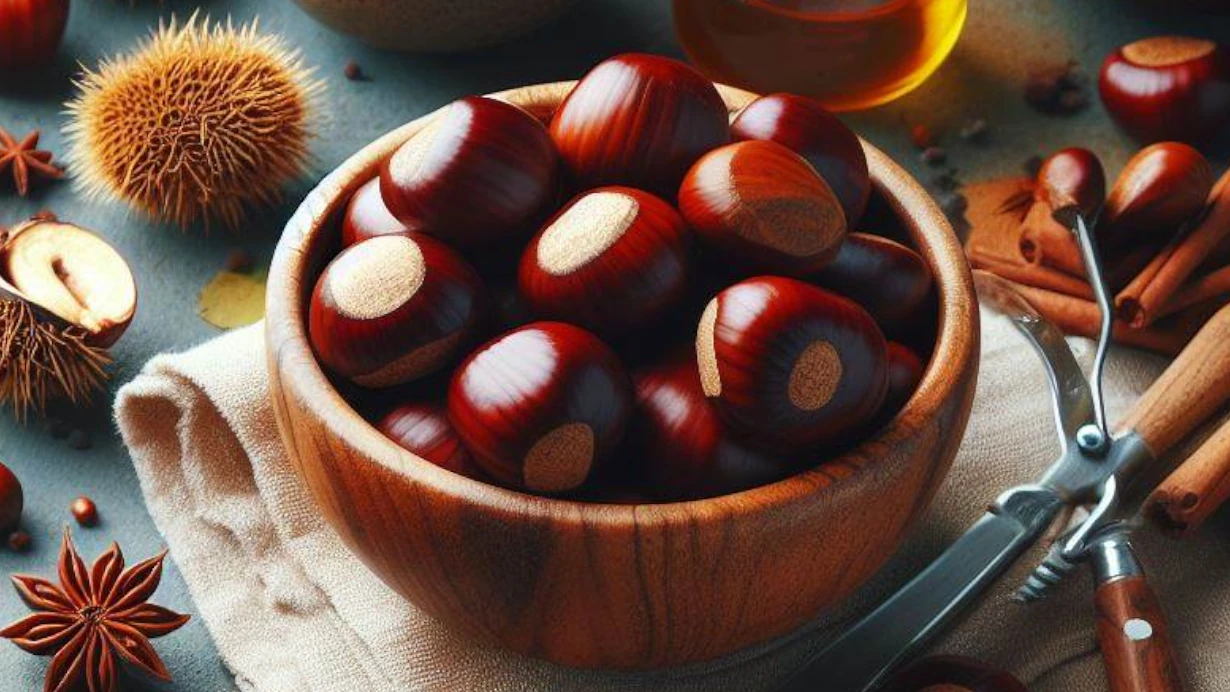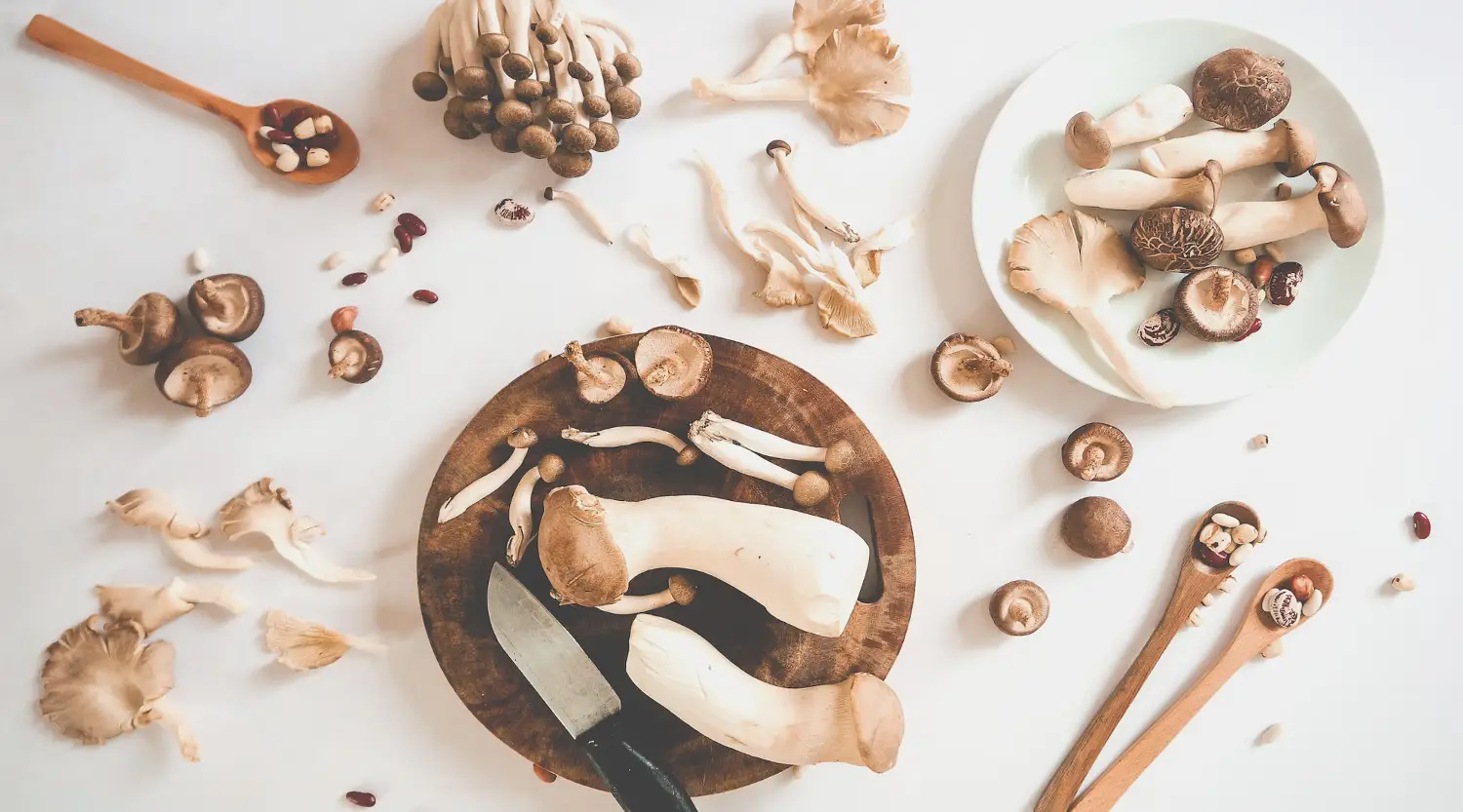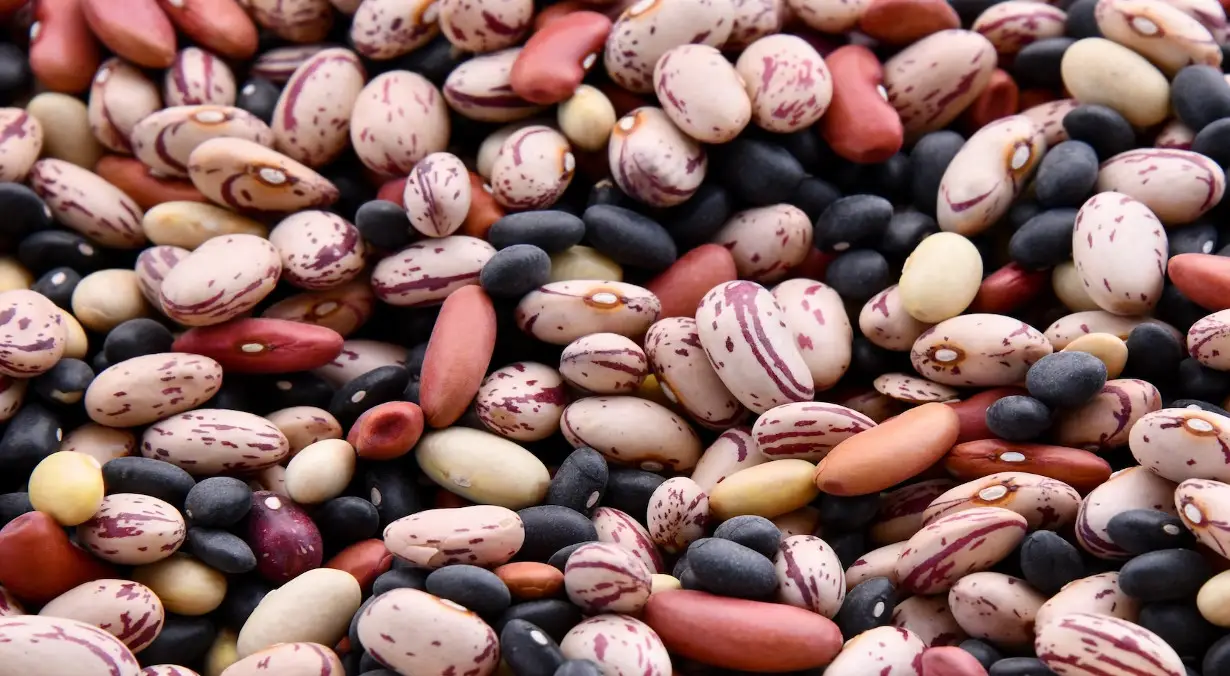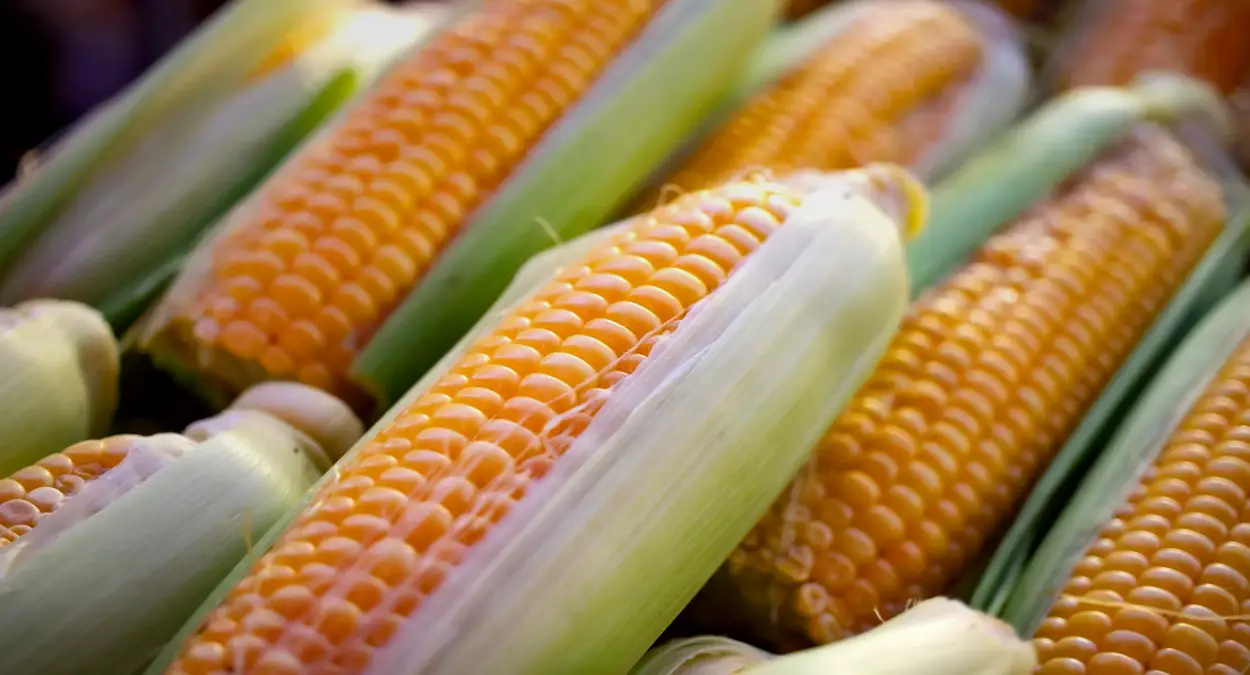Chestnuts Lysine and Arginine Info Sheet
Overview
Chestnuts are edible nuts that grow on trees in temperate regions.They have a brown, spiny shell and a starchy, sweet flesh. They are high in carbohydrates, fiber, vitamin C, and minerals.
Chestnuts can be eaten raw, roasted, boiled, or candied. They can also be used as an ingredient in soups, salads, desserts, and stuffing.
Chestnuts may have some health benefits, such as providing energy, antioxidants, and anti-inflammatory effects, and preventing scurvy and anemia.
However, they may also contain allergens, oxalates, and calories, so they should be consumed in moderation and with caution.
| Name | Lysine (mg/100g) | Arginine (mg/100g) | Ratio |
|---|---|---|---|
| Chestnuts | 154mg | 294mg | 0.523 |
Chestnuts contains 154mg of Lysine and 294mg of Arginine per 100g of product.
This means Chestnuts has a low Lysine-Arginine ratio of 0.523.
Because Chestnuts contains slightly more arginine than lysine, reducing its consumption may help people who suffer from herpes, as it may lower the viral activity.
Lysine Considerations
Chestnuts are a fair source of lysine, an essential amino acid that is important for protein synthesis, collagen formation, and calcium absorption.
Lysine may also help prevent cold sores, herpes, and shingles.
Chestnuts provide about 154 mg of lysine per 100 grams of food, which is about 5-19% of the recommended daily intake of 800-3000 mg for adults.
It's one of the nine amino acids that the body can't produce, so it must be included in our diet.
Lysine has different roles in the body, such as aiding in growth, healing, energy production, immune function, and the production of collagen.
Research indicates that lysine may have an impact on the herpes virus, which is responsible for cold sores and genital sores.
Taking lysine supplements or using lysine cream could potentially prevent or treat these infections by slowing down the amino acid arginine, which the virus requires for growth.
Arginine Considerations
Chestnuts are also a fair source of arginine, another essential amino acid that is involved in nitric oxide production, wound healing, and immune function.
Arginine may also help improve blood flow, erectile dysfunction, and athletic performance.
Chestnuts provide about 294 mg of arginine per 100 grams of food, which is about 5-7% of the recommended daily intake of 400-6000 mg for adults.
Arginine has a variety of benefits for our wellbeing and performance, such as lowering blood pressure, enhancing wound healing, and increasing exercise endurance.
Arginine can also affect the herpes virus, which causes cold sores and genital herpes.
Studies suggest that arginine may help the virus grow and cause outbreaks, so people with herpes may want to avoid foods that are high in arginine or take lysine supplements to block its effects.
Lysine-Arginine Ratio
Chestnuts have a moderate lysine-arginine ratio of 0.523, which means that they have slightly more arginine than lysine.
This ratio may affect the balance of these amino acids in the body, and may influence the risk of viral infections, such as herpes simplex virus (HSV).
Some studies suggest that a higher lysine-arginine ratio may help suppress HSV replication, while a lower ratio may promote it.
Therefore, chestnuts may not be the best choice for people who have or are prone to HSV outbreaks.
However, the lysine-arginine ratio is not the only factor that affects HSV, and other factors, such as stress, immunity, and diet quality, should also be considered.
Both lysine and arginine are essential for protein synthesis and various other bodily functions.
They, however, have opposing effects on the herpes simplex virus, which causes cold sores and genital herpes.
Lysine can prevent the replication of the virus, whereas arginine can stimulate it.
Thus, a diet rich in foods with a high lysine to arginine ratio may help reduce the occurrence and severity of herpes outbreaks.
Foods that have a high lysine-arginine ratio include dairy products, fish, poultry, fruits, and vegetables.
These foods can provide the body with enough lysine to compete with arginine and inhibit the virus from replicating and causing flare-ups.
Dietary Considerations
Nuts are generally abundant in arginine and scarce in lysine, which makes them unfavorable for people with herpes.
Arginine can stimulate the replication of the herpes virus, while lysine can inhibit it.
Nuts that have the highest arginine to lysine ratio include peanuts, almonds, walnuts, and hazelnuts.
These nuts should be avoided or consumed in moderation by people with herpes.

For example:
A well-balanced and healthy diet that strengthens your immune system and lowers inflammation is important.
This means you should eat a lot of fruits, vegetables, whole grains, lean protein, and good fats, and avoid processed foods, added sugars, alcohol, and caffeine.
Drinking enough water to keep yourself hydrated and remove toxins from your body.
Water can also help prevent dryness and irritation of the skin and mucous membranes, which can result in fewer outbreaks.
Consider taking l-lysine supplements, which can help prevent herpes outbreaks and stop a cold sore before it emerges by limiting the availability of arginine for the virus, which it requires to produce a cold sore.
Taking other food supplements that can improve your immunity and protect your cells from oxidative stress, such as vitamin C, zinc, selenium, and antioxidants.
Foods that can boost your immunity and fight inflammation are essential to prevent outbreaks.
Honey, yogurt, aloe vera, and chamomile are some examples of these foods.
They can also soothe your symptoms and help you recover quicker by reducing pain, swelling, and itching.
Check more food information






